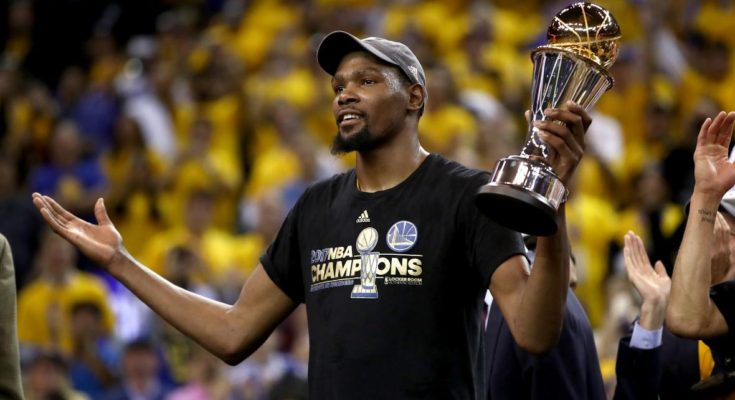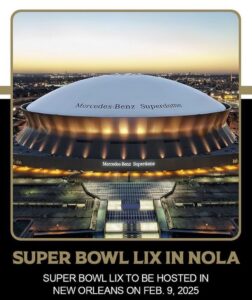On July 13, 1978, Soviet scientist Anatoli Bugorski was just trying to do his job. He worked in a lab with the U-70 synchrotron, the Soviet Union’s most powerful particle accelerator. When one of the machine’s many complicated parts suffered a malfunction, the 36-year-old scientist stuck his head inside to see what went wrong. Unbeknownst to him, the accelerator was still on, and a proton beam that was traveling at nearly the speed of light hit him directly in the face. According to a report, he saw a “flash brighter than a thousand suns” but felt no pain. He survived. The beam, meanwhile, passed clean through Bugorski’s head and continued on its merry way as if nothing was there.
Anatoli Bugorski is the NBA. The Golden State Warriors are the proton beam.
It’s not the Warriors’ fault they flash-fried the league. That is precisely what they were designed to do. You don’t add Kevin Durant to your 73-win team to eke out a few wins here and there. The 2017 Warriors were engineered for devastation. If you’d assembled them in your garage, representatives from the Department of Defense would come knocking at your door, and they would be wearing hazmat suits.
If anything, we should be thankful Golden State plays fun, fast-paced basketball. It reduces the pain of having to watch our favorite teams get their butts kicked. The Warriors are the NBA’s benevolent dictator, and they wear their festooned military jackets with style.
When Steph Curry and Kevin Durant are at their best, and they usually are, they are essentially unguardable. In the finals-clinching Game 5, Warriors coach Steve Kerr leaned on them in the pick-and-roll more than he ever had before, and the results were predictable. It’s hard to imagine the Cavs could’ve done anything to stop the Warriors’ two MVPs even if they had seven guys on the floor. On the winners’ podium, Doris Burke asked Kerr how he was able to incorporate Durant into his squad. “Did you say that I had to fit Kevin Durant in?” he deadpanned. “It really wasn’t that hard, but thanks.”
If the Warriors did anything wrong, it’s that they committed the sin of removing all doubt. They had but one hiccup all postseason: Game 4 in Cleveland, where all the Cavs had to do was put together perhaps the most incredible offensive performance in NBA Finals history in order to rack up one measly win. On Monday night in Oakland, the Cavs shot 53 percent from the floor and 46 percent from three-point range and LeBron James amassed 41 points, 13 rebounds, and eight assists. It still felt like a miracle that Cleveland lost by just nine points. If J.R. Smith hadn’t tossed in seven threes, most of them with between two and 10 hands in his face, the final score would’ve been a lot less friendly than 129-120.
Some theorists think there are an infinite number of universes that contain infinite versions of our world, and that in all those different worlds you’ll find all the events that have ever happened and could ever happen. Well, there are no worlds out there where the Warriors lost this series. The Cavs made it interesting for a bit, but that’s the most they could have ever hoped to do.
Every team the Warriors faced in the playoffs was designed to beat Golden State—to match and counter the Warriors’ style and personnel. None of them came close, save for the defending world champion Cavaliers in Game 4 and in parts of Game 3 and Game 5. In a postseason often mocked for its length and its grueling travel schedule, Golden State went 16-1 and took just four round-trip chartered flights on its path to victory.
Due to their nearly pristine playoff record, the Warriors will be remembered as the rare NBA champion that didn’t have to overcome adversity. That is unfair. Durant missed 20 regular-season games with a sprained knee ligament, and Kerr sat out 10 postseason contests due to his recurrent back issues. Golden State went 26-4 during their respective absences. The Warriors are less an adversity-free champion than an adversity-proof one.
Sports fans are weird when it comes to adversity. We demand it, but only in a terribly narrow sense. Injuries are rarely described as “adversity”; they are luck-of-the-draw misfortunes. The kind of adversity we’re willing to accept comes during the run of play, and its existence can only be acknowledged after it is overcome. Between 1988 and 1990, Michael Jordan lost to the Pistons in the playoffs because he was a selfish player or because his teammates were bums, depending on who you asked. After Chicago finally beat Detroit in 1991, those losses retroactively became the gantlet the Bulls went through to make them battle-tested champions.
These Warriors are different. Last year, a record-breaking regular season ended with a humiliating finals loss in which they (say it with me) blew a 3-1 lead. Their adversity was memed and mocked. They responded by getting Kevin Durant.
This year wasn’t dedicated to “overcoming adversity”—it was about primacy and dominance. The scary thing for the rest of the league is that this dominance won’t end after Game 5. Golden State is built to do this again and again and again.
The Warriors exist in a vacuum of their own creation. They cruised through the NBA like proton beams, unimpeded by all those who made the mistake of putting their heads in the way. (By Nick Greene)









